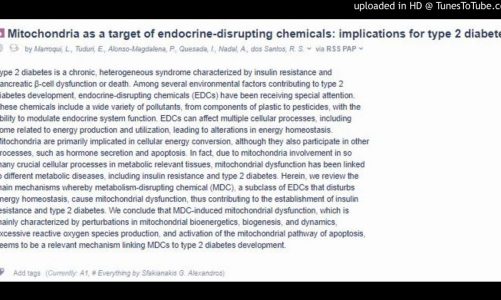Huperzine A and Alzheimer’s disease
Subscribe: https://www.youtube.com/channel/UCuKOFjta0rQwfRDku9k_suA?sub_confirmation=1
Contact: [email protected]
Facebook: https://www.facebook.com/Super-Health-and-Longevity-111312071436209
***
Tell us about your personal experience in the comment section.
We are always thrilled to hear your feedback and experience.
***
If you want us to give you the contact information of professionals who work with our network, feel free to write to [email protected] and we’ll put you in touch with the right professional for your needs.
In order to better find the right professionals for you, please indicate in your email if your queries regarding: 1) overall health; 2) food and supplement; 3) longevity. 4) others (in this case a brief description of your needs is recommended). We will get back to you as soon as possible with the contact information of a specific provider.
***
Huperzine A is a chemical extracted from a Chinese herb, called Huperzia serrata. This chemical is a nootropic drug, usually prescribed for people with Alzheimer’s disease or other types of dementia. Huperzine A acts as a natural inhibitor of the enzyme acetylcholinesterase. Acetylcholinesterase is an enzyme found at the postsynaptic neuromuscular junctions, especially in muscles and nerves. Acetylcholinesterase breaks down acetylcholine, a neurotransmitter essential for memory and learning, which is decreased in both concentration and function in patients with Alzheimer’s disease. Neurons in the brain communicate with each other by releasing neurotransmitters, like acetylcholine, to the presynaptic terminals of other neurons. The inhibiting action of acetylcholinesterase to the acetylcholine causes breakage in connections between networks of neurons. Huperzine A is able to counteract the effects of acetylcholinesterase, which ameliorates the symptoms of Alzheimer’s disease. Moreover, Huperzine A has also protective effects against amyloid-beta plaques, which are a key player that triggers the progression of Alzheimer’s Disease. Beta-amyloid plaques are formed from beta-amyloid peptides, which are like magnets that clump with each other to form plaques and destroy neuronal function. They also trigger neuronal apoptosis. Huperzine A attenuates the activation of a pathway induced by amyloid-beta that causes neuronal apoptotic cascade. Recently, it has been found to exhibit a protective effect on neurons against mitochondrial dysfunction by reducing oxygen free radicals accumulation. Mitochondrial dysfunction is also an early feature of Alzheimer’s disease. Mitochondria are subcellular organelles that generate ATP necessary for normal cellular functions. Abnormalities or dysfunction in mitochondria associated with enhanced oxidative stress causes the mitochondria to generate a lesser amount of ATP and several pro-apoptotic proteins. When these pro-apoptotic proteins translocate into the nucleus, DNA breaks into fragments, which causes neuronal death.
We would like to hear about your own experience with this topic. Leave a comment. Lastly, remember that it is important to talk to your doctor or other professional before beginning any sort of supplementation or treatments. Feel free to contact us if you want us to give you the contact information of professionals who work with our network.
***
Topic related to: LONGEVITY, HEALTH, IMMUNITY, INFLAMMATION, ANTIAGING, LIFESPAN, Mitochondria, HEALING, SUPPLEMENTS, HEALTHY LIFE, IMMUNE SYSTEM, LONGEVITY PROTOCOL.
Subscribe: https://www.youtube.com/channel/UCuKOFjta0rQwfRDku9k_suA?sub_confirmation=1
Contact: [email protected]
source



